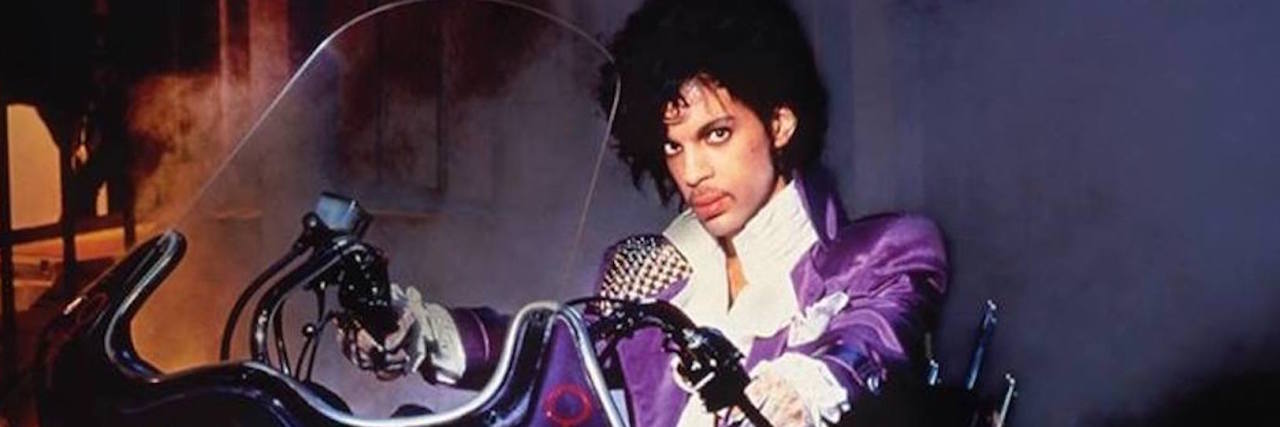“He looked and sounded fine — great, even.”
These are the words that a Paste editor used to describe Prince’s general disposition just a week before he was found dead in his Paisley Park complex, and hours before he had to be revived after his plane made an emergency landing.
The article is an account of one of Prince’s last performances, written six days before his death. Prince’s death is described as “shocking” in the editor’s preface to the piece, added as a posthumous qualifier after the article had already been published; “the concert was the type of high energy event we’d come to expect from Prince.”
This article stuck out to me because of the editor’s note and because of an offhand comment the author makes: “Prince isn’t fully human — the man hasn’t visibly aged in 30 years.”
I’ve also expressed this sentiment before, certain that Prince would always be around. Perhaps Prince wasn’t fully human, but we found out that he certainly was mortal. When people discuss Prince’s death, I hear words like “shocking” and “unbelievable” thrown around with abandon, because Prince seemed “fine.” But any addict — especially one who seems to be “functioning” — will know that there is nothing shocking about the death of someone who struggles with addiction.
When I came out as an alcoholic to anyone who cared to listen, there was a lot of shock too. I was a high-performing employee at my company, I ate well and exercised. I had a stable relationship and a nice home and — most importantly — I managed my addiction so that it was separate from other parts of my life. My own mother had no idea.
As the eternally wise Cat Marnell preaches: “So while stars are infamous for their hard partying… the truth is, when they use most heavily and subsequently die, it’s usually in their most private places, where they can relax, be in quiet, and don’t have to appear functional to the outside world.”
It’s not just stars, but people alike. Just like Cat, I was “my very best self in public before rushing home to numb out again.” It takes an extraordinary amount of energy and, quite frankly, cunningness to pull off the addict act. It’s exhausting, but was completely worth it to a person who values a substance over her (my) own life.
The word “addict” seems like a cruel and disrespectful word to attach to a man whose teetotaling nature has been a deliberately defining feature of his persona. But maybe that’s the point: addiction doesn’t care if you morally oppose drugs, alcohol and cigarettes. Addiction doesn’t care about your faith. Addiction doesn’t care how talented you are. This is because addiction is not a reflection of the morality or worth of the people it affects. There is no specific type of person who becomes an addict. And there is often no way at all to tell that a person is struggling with addiction by looking at him.
So why does this continue to shock us?
Guess what: Prince was not fully human, he was basically on track to be immortal, he was aggressively opposed to getting fucked up and he seemed absolutely fine. But addiction still got him.
I hope Prince’s death helps people to understand that choice is not a luxury available to addicts: I know I certainly wasn’t drinking three bottles of wine a night because I wanted to. Prince seemed a little stubborn (this is a vast understatement), so I’m guessing it was enormously difficult for him to ask for help. It’s hard too for us “common folk” to ask — what if we worked to change that? We can’t save Prince, but lessening the stigma around addiction would make it easier to get help — this would save many lives.
When I found out Prince had died, I immediately left work to get loaded. Now I see that he also helped me to understand the gravity of my situation. If Prince the quasi-immortal could die, then what hope did I have?
Prince left many, many legacies — he expanded the realm of possibility for black men who didn’t conform to traditional gender roles, he put women front and centre in his music and his bands, he warned us about the internet — but I hope one of his most enduring legacies will be that addiction can happen to anyone.
Follow this journey here.
If you or a loved one is affected by addiction and need help, you can call SAMHSA‘s hotline at 1-800-662-4357.
We want to hear your story. Become a Mighty contributor here.
Lead image via Prince Facebook

